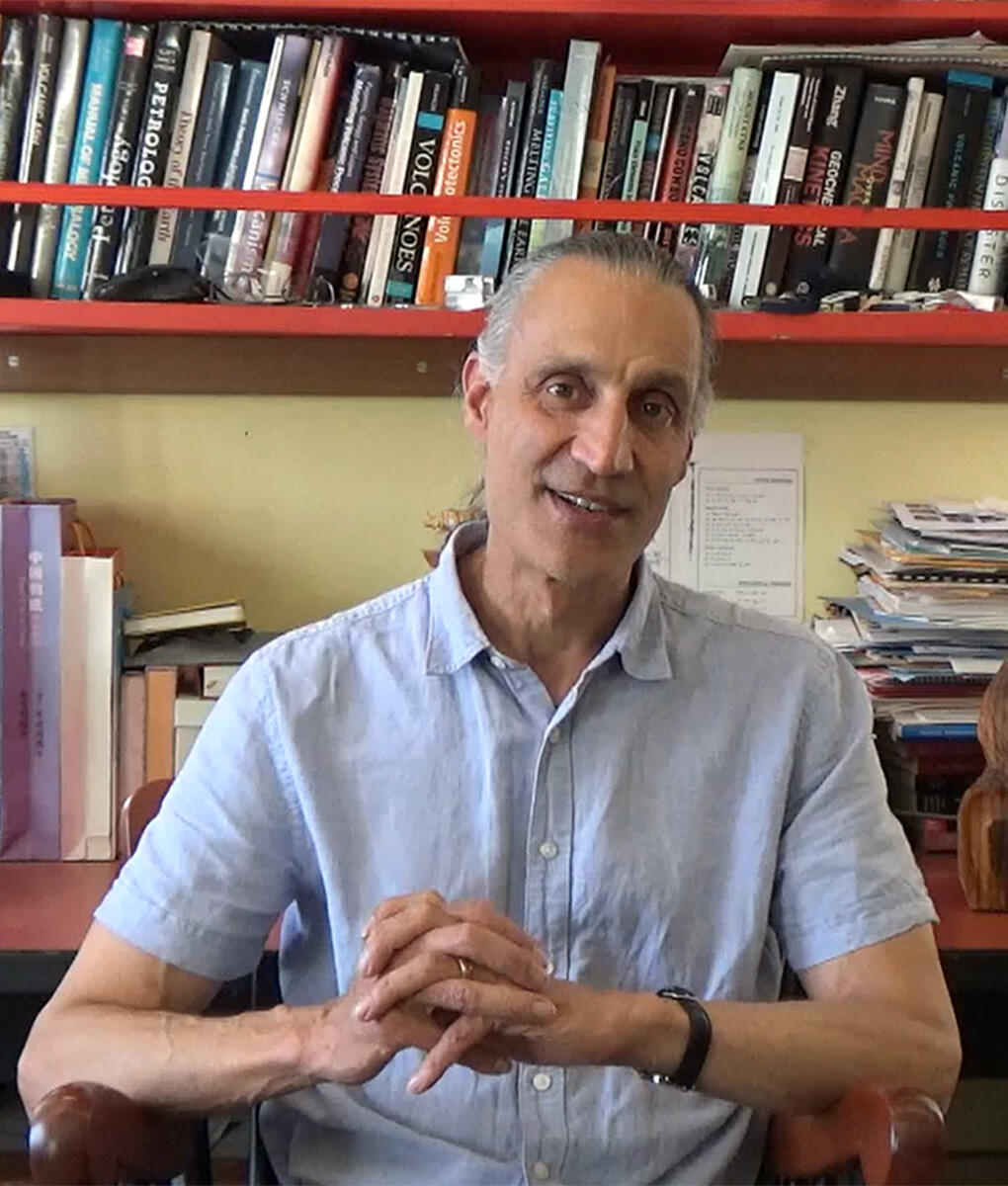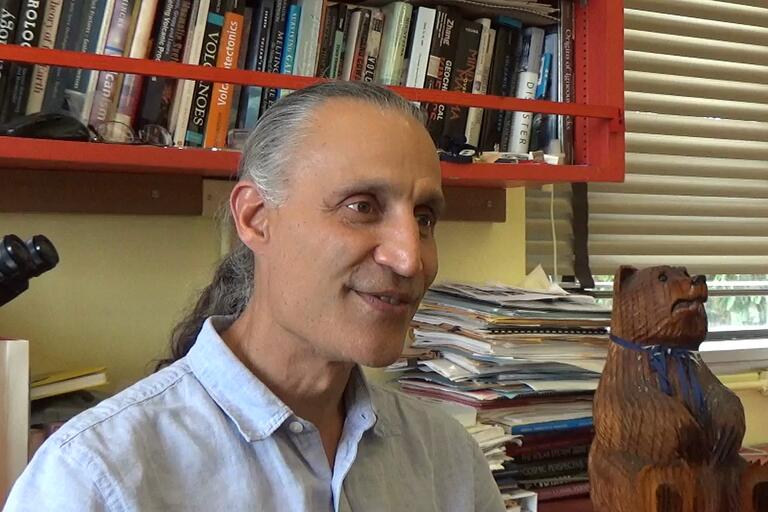
Michael Manga is an earth and planetary sciences professor who currently leads the department. He studies earthquakes, groundwater, and especially volcanoes — why they exist, how they erupt, and what are the effects of eruptions. Like many of his peers, Manga stores dozens of interesting rock samples in his McCone Hall office.
His department covers a lot of ground: geology, geophysics, planetary science, atmospheric science, environmental earth science, and ocean/marine science. After a busy morning guiding undergraduate students along Strawberry Creek’s geologic features, Manga sat down for an interview to reflect on his last year as department chair.






